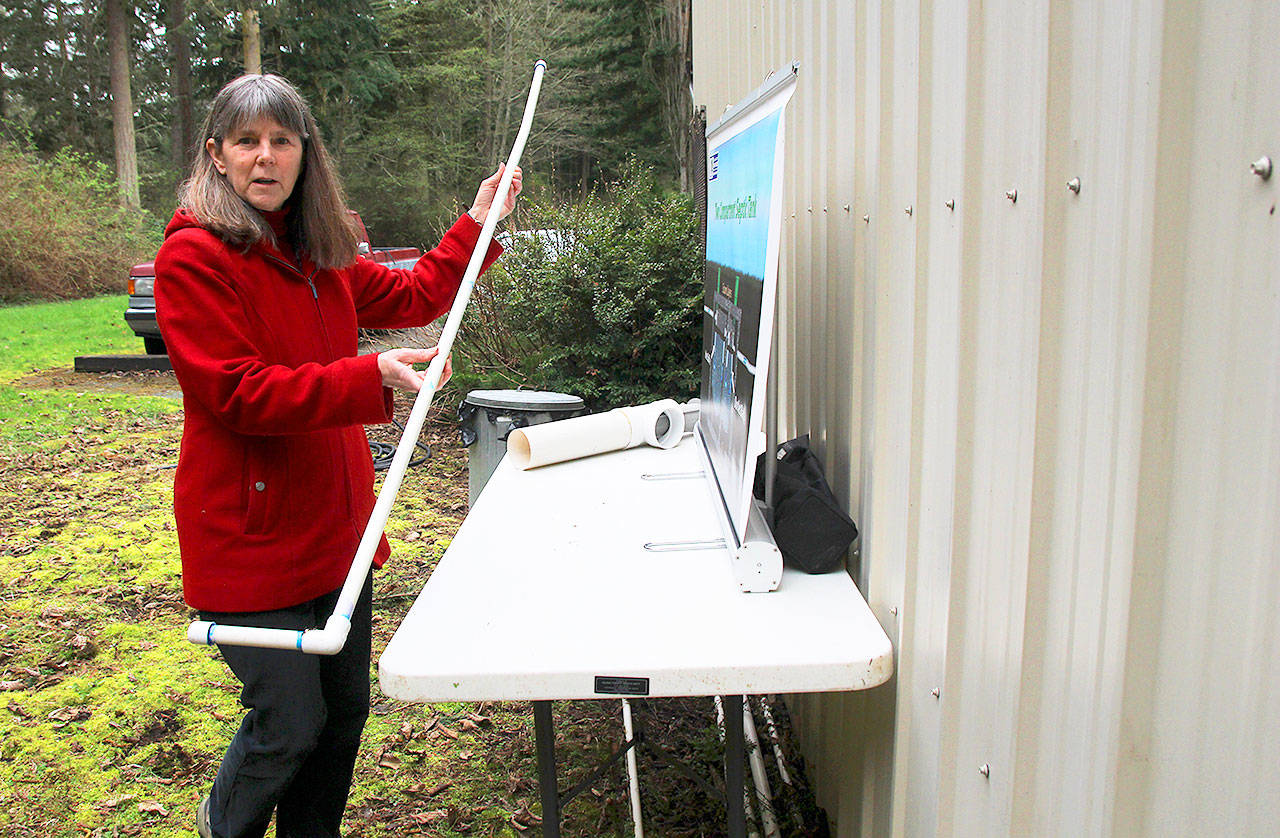Applications for septic system permits are overflowing at Island County’s environmental health offices, creating a backlog of work for employees and weeks of waiting for residents.
“There’s been over a 100 percent increase in the number of septic permits and septic revenue,” Keith Higman, Health Services Director, informed county commissioners at a Wednesday work session.
“The leading indicator of economic growth in our and other counties is septic system applications.”
Currently, about 72 percent of Island County residents depend on 28,000 septic systems to dispose of waste water from toilets, showers, baths, dishwashers, washing machines and sinks.
With the growth spurt, there’s not enough septic specialists to keep up with demand, commissioners were told.
Jim Exe, who’s been a county health septic system specialist for 27 years, said the permit turnaround time five years ago was 10 to 14 days.
“Now, we’re seeing around 8 to 10 weeks turnaround on permits,” Exe said. “It gets hectic sometimes but we’re doing the best we can.”
Along with more permits comes more revenue (permits fees vary in cost.) The office is a permit-driven operation meaning it’s dependent on the amount of revenue collected.
In 2012, the county collected $196,716 in septic permits. Last year, it collected $397,747, an increase of 102 percent., Higman said.
He asked that the office return to a higher staffing level, predicting “we’ll continue to see the increase in activity.”
Currently, there’s two septic specialists on Whidbey — one for the north and one for the south — and one specialist on Camano.
Another employee hired a year ago is continuing to be trained but it takes time because it involves learning the intricacies of soil, water runoff and engineering, Higman said.
One of the first steps any prospective property owner must take is applying for a permit to construct a sewage disposal or septic system. Soil, water table and slope must first be deemed suitable.
A licensed designer plans the size of septic tanks, pump tanks and drain field lines so it sufficiently supports the size of the structure and number of occupants.
Not having enough personnel is affecting construction starts because building permits can’t get issued until septic permits are cleared.
Commissioners directed Higman to come up with a staffing plan, pronto.
“There’s a need for more housing in this county,” said Commissioner Helen Price Johnson, who represents South Whidbey. “This is a kink in the pipe that is keeping housing from being built.”
Keeping 28,000 septic sites properly working is critical to protect Whidbey’s groundwater, beaches and shores.
By law, inspections are required every one to three years, depending on the type of septic systems. Understanding how septic systems work can prevent disastrous failures, which can cost from $10,000 to $20,000 to repair.
“We are our own waste water treatment managers,” says Maribeth Crandell, who oversees educational classes called Home Owner Septic Training. “We have to take responsibility for its proper care and maintenance.
“Many people don’t realize that septic systems need TLC. They’re ‘out of sight, out of mind.’ But like your car, it needs regular maintenance.”
Homeowners with a basic gravity system (no alarm, no electricity, no moving parts) or a conventional pressure system may be able to get certified to do their own inspections by taking free county classes, Septic 101 and 201.
“If you inspect it yourself it could save $100-$300 a year, depending on the type of system you have,” Crandell said.
In the past three years, 1,764 people have taken the classes and 624 have become certified as their own inspectors.
Crandell said homeowners need to understand the difference between getting an inspection and getting their septic tank pumped.
The goal of pumping is to remove solids from the tank. The tank should be pumped when it is one-third full of solids. Septic 201 teaches people how to measure the layers in their tank, known as scum (top layer) and sludge (bottom layer.)
“An inspection will tell you if you need to get your tank pumped,” she said. “So do the inspection first before paying for pumping. Pumping can cost twice as much as an inspection.”
Getting to know your septic system and monitoring and maintaining it pays off.
“If you treat your system right, you won’t have to pump it for six to ten years,” Crandell said.
Learn all about sewage for Earth Day
How about learning about your personal sewage system for Earth Day?
Island County is kicking off its annual spring Home Owner Septic Training (HOST) classes with an open house Thursday, April 20, 4 p.m. to 6 p.m., at Coupeville Library so residents can meet with environmental staff and ask questions.
Septic 101 teaches the basics. Septic 201 teaches how to protect septic systems from costly repairs by becoming your own inspector. Classes are free. Inspector certification costs $28.
In Island County, only conventional gravity and conventional pressure systems are able to be inspected by homeowners. All other systems require a professional inspection. Also, conventional pressure systems in designated sensitive areas require a professional inspection.
Classes are offered throughout the county on various dates through June.
To register: Call 360-678-7914 or visit: www.islandcountyseptictraining.com



